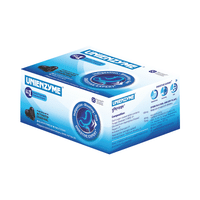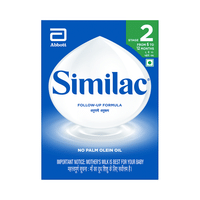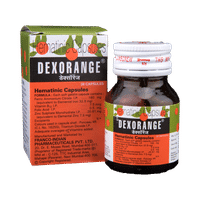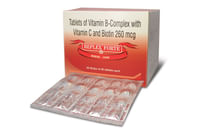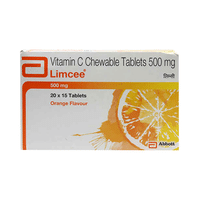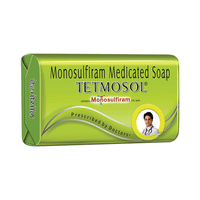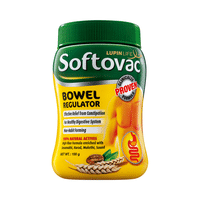Carebet-GC Cream
Rs.72.70for 1 tube(s) (15 gm Cream each)
food interaction for Carebet-GC
alcohol interaction for Carebet-GC
pregnancy interaction for Carebet-GC
lactation interaction for Carebet-GC
medicine interaction for Carebet-GC
food
alcohol
pregnancy
lactation
medicine
No interaction found/established
No interaction found/established
Carebet-GC Cream is unsafe to use during pregnancy as there is definite evidence of risk to the developing baby. However, the doctor may rarely prescribe it in some life-threatening situations if the benefits are more than the potential risks. Please consult your doctor.
CONSULT YOUR DOCTOR
Carebet-GC Cream is probably safe to use during breastfeeding. Limited human data suggests that the drug does not represent any significant risk to the baby.
SAFE IF PRESCRIBED
No interaction found/established
SALT INFORMATION FOR Carebet-GC
Betamethasone(0.05% w/w)
Uses
Betamethasone is used in the treatment of allergic conditions.
How it works
Betamethasone is a steroid which works by blocking the production of certain chemical messengers in the body that cause inflammation (redness and swelling) and allergies.
Common side effects
Weight gain, Mood changes, Behavioral changes, Skin infection, Hair follicle inflammation, Itching, Burning sensation, Cataract, Increased glucose level in blood, Bruising, Headache, Dizziness, Weakness, Fatigue, Visual disturbance, Nausea, Altered menstrual cycle, Impaired wound healing, Dryness, Stretch marks, Hypertrichosis (excessive hair growth), Skin atrophy, Miliaria (sweat rash), Perioral dermatitis, Allergic contact dermatitis, Hypopigmentation, Local site pain, Angioedema (swelling of deeper layers of skin), Decreased potassium level in blood, Hypersensitivity, Blindness, Pulmonary edema, Rebound effect, Cushing syndrome, Glycosuria, Glaucoma, Slow heart rate, Cardiac arrest, Arrhythmia (irregular heartbeats), Cushingoid syndrome, Perforated peptic ulcer, Pathologic fracture of long bones, Hypothalamic-pituitary-adrenal axis suppression, Charcot-like arthropathy, Steroid myopathy
Clotrimazole(1% w/w)
Uses
Clotrimazole is used in the treatment of fungal infections.
How it works
Clotrimazole is an antifungal medication. It kills and stops the growth of the fungi by destroying its cell membrane, thereby treating your skin infection.
Common side effects
Blisters, Erythema (skin redness), Vaginal discharge, Genital peeling, Burning sensation of the penis (of sexual partner), Stinging sensation, Edema (swelling), Vaginal burning sensation, Skin irritation, Allergic reaction, Polyuria, Vaginal itching, Vaginal bleeding, Pain in vagina, Vaginal swelling
Gentamicin(0.1% w/w)
Uses
Gentamicin is used in the treatment of bacterial infections.
How it works
Gentamicin is an antibiotic. It stops bacterial growth by preventing synthesis of essential proteins required by bacteria to carry out vital functions.
Common side effects
Hearing loss, Joint pain, Headache, Breathlessness, Vomiting, Nausea, Fever, High blood pressure, Edema (swelling), Thrombophlebitis, Confusion, Depression, Drowsiness, Lethargy, Myasthenia gravis, Numbness, Paresthesia (tingling or pricking sensation), Peripheral neuropathy (tingling and numbness of feet and hand), Seizure, Vertigo, Hair loss, Urticaria, Decreased calcium level in blood, Weight loss, Clostridium difficile associated diarrhea, Decreased appetite, Enterocolitis, Urinary casts, Low urine output, Protein in urine, Renal toxicity, Agranulocytosis (deficiency of granulocytes in the blood), Anemia (low number of red blood cells), Hepatomegaly (enlarged liver), Increased liver enzymes, Hypersensitivity, Muscle cramp, Muscle weakness, Visual disturbance, Ringing in ear, Decreased creatinine clearance, Respiratory depression, Increased reticulocytes, Low blood platelets, Pulmonary fibrosis, Enlarged spleen, Laryngeal edema, Gastrointestinal bleeding
SUBSTITUTES FOR Carebet-GC
6 Substitutes
6 Substitutes
Sorted By
 Rs. 43.80save 51% more per gm of Cream
Rs. 43.80save 51% more per gm of Cream Rs. 26.50save 47% more per gm of Cream
Rs. 26.50save 47% more per gm of Cream Rs. 38.52pay 54% more per gm of Cream
Rs. 38.52pay 54% more per gm of Cream Rs. 31.90save 68% more per gm of Cream
Rs. 31.90save 68% more per gm of Cream Rs. 39save 22% more per gm of Cream
Rs. 39save 22% more per gm of Cream
Expert advice FOR Carebet-GC
- Betamethasone can be taken with or without food, but try to have it at same time every day.
- Do not use it more often or for longer than advised by your doctor.
- Betamethasone can make it harder for you to fight off infections. Notify your doctor if you have any signs of infection such as a fever or sore throat.
- Side effects such as mood changes or stomach problems can happen when you start taking Betamethasone. Inform your doctor if this bothers you.
- Do not stop taking Betamethasone suddenly without talking to your doctor first as it may worsen your symptoms.
Frequently asked questions FOR Carebet-GC
Betamethasone
Q. How does Betamethasone work?
Betamethasone works by decreasing the inflammation caused by allergies. It reduces inflammation by blocking the release of certain natural substances that cause allergic symptoms such as swelling, redness, and pain.
Q. Is Betamethasone safe to use?
Betamethasone is safe to use when used in the dose and duration advised by your doctor. You should not take this medicine if you are allergic to Betamethasone or any of the other ingredients of this medicine. Furthermore, you should not take Betamethasone if you have an infection and have not yet started medicine (e.g., antibiotics) to treat it.
Q. Does Betamethasone cause hair loss?
No, Betamethasone is not known to cause hair loss. In fact, it may cause an increase in body hair growth (especially in females) on long-term use. Talk to your doctor if you get excessive hair growth on your body while taking Betamethasone.
Clotrimazole
Q. What is Clotrimazole used for?
Clotrimazole is an antifungal medicine. It is used to treat fungal skin infections such as ringworm (fungal skin infection that causes a red scaly rash on different parts of the body), athlete’s foot (fungal infection of the skin on the feet and between the toes), fungal nappy rash and fungal sweat rash. It is also used to relieve irritation of the vulva (external thrush) and irritation occurring at the end of the penis, which may be associated with thrush.
Q. Clotrimazole is effective against which fungi?
Clotrimazole is effective against Trichophyton species which cause ringworm infection, athlete’s foot, and jock itch (fungal infection of the skin in the groin or buttocks). It is also effective against yeast known as Candida which commonly causes vaginal thrush (infection caused by an overgrowth of yeast called Candida albicans).
Q. I have started using Clotrimazole. By when can I expect to start seeing the improvements?
The symptoms of skin infection, such as itching or soreness, should improve within a few days of treatment. However, the signs such as redness and scaling may take longer to disappear. Do not stop applying this medicine before the duration advised by your doctor, even if you feel better.
Gentamicin
Q. What is Gentamicin? What is it used for?
Gentamicin is an antibiotic used to treat bacterial skin infections. It may also be used to treat infected cuts and wounds. Gentamicin stops the growth of bacteria, which helps to resolve the symptoms.
Q. Is Gentamicin effective?
Gentamicin is effective if used in the dose and duration advised by your doctor. Do not stop taking it even if you see improvement in your condition. If you stop using Gentamicin too early, the symptoms may return or worsen.
Q. How to use Gentamicin?
Before using Gentamicin, clean and dry the affected area. Gently and thoroughly massage it into the skin. Be careful not to get the medication in your eyes or mouth. If Gentamicin gets in your eyes accidentally, wash with plenty of water and call your doctor if your eyes are irritated.














